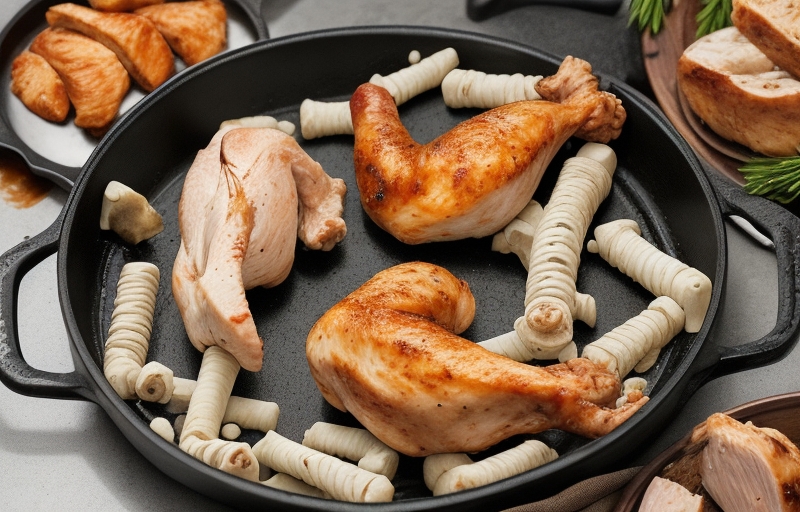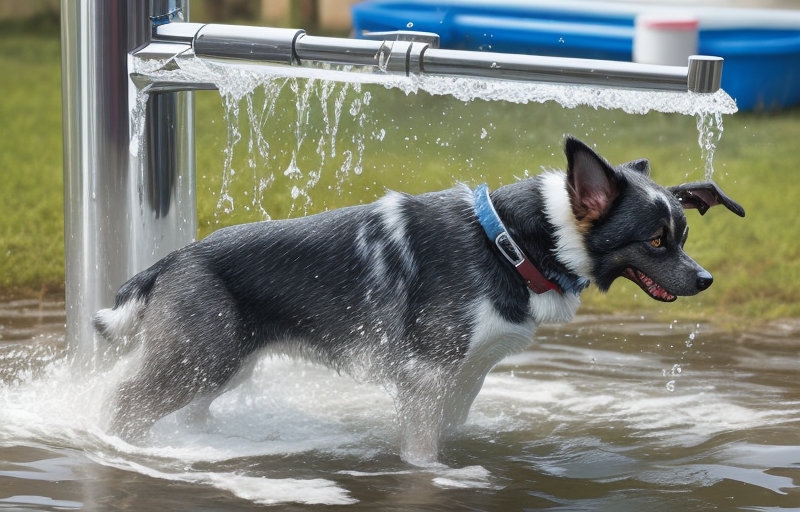Discover the key role of Lean Proteins in Fueling Canine Health. Explore a comprehensive list of protein-rich foods, including chicken and turkey, and learn about the advantages these sources bring to your dog’s overall well-being.
Introduction:
Proteins are the building blocks of life, and this holds not only for humans but also for our loyal companions, dogs. Lean proteins play a crucial role in fueling canine health, contributing to their overall well-being, energy levels, and longevity. In this article, we will delve into the importance of lean proteins for dogs, explore a variety of protein-rich foods, and highlight the numerous advantages these sources offer.
Importance of Lean Proteins for Dogs:
Proteins are essential for various physiological functions in dogs, including the development and repair of tissues, muscle maintenance, and the production of enzymes and hormones. Lean proteins, characterized by lower fat content, are particularly beneficial for dogs as they support a healthy weight, reduce the risk of obesity-related issues, and contribute to a shiny coat and strong nails.
List of Protein-Rich Foods for Dogs:

Chicken:
Chicken is a versatile and readily available lean protein source for dogs. Packed with essential amino acids, it promotes muscle development, supports a healthy immune system, and aids in maintaining proper body weight.
Turkey:
Turkey is another excellent lean protein option for dogs. Rich in nutrients like iron, zinc, potassium, and B vitamins, it not only provides essential building blocks but also supports overall canine health.
Fish:
Fish, especially varieties like salmon and mackerel, are rich in omega-3 fatty acids. These fatty acids contribute to a healthy coat, reduce inflammation, and support cognitive function in dogs.
Eggs:
Eggs are a complete protein source and a powerhouse of nutrients. The protein, vitamins, and minerals in eggs contribute to muscle strength, bone health, and overall vitality in dogs.
Lean Beef:
While beef is generally higher in fat, opting for lean cuts can still provide valuable protein without excess fat content. Lean beef is rich in iron, zinc, and essential amino acids.
Dairy Products:
Moderate amounts of dairy products, such as plain yogurt and cottage cheese, can be included in a dog’s diet. These sources offer protein and calcium, promoting bone health and aiding digestion.
Role of Lean Proteins in Fueling Canine Health
Muscle Development:
Lean proteins play a pivotal role in the development and maintenance of muscles in dogs. Adequate protein intake supports muscle strength, agility, and overall physical performance.
Weight Management:
Incorporating lean protein sources helps manage a dog’s weight, reducing the risk of obesity and related health issues. Lean proteins contribute to a healthy body composition and metabolism.
Shiny Coat and Healthy Skin:

The nutrients found in lean proteins, such as omega-3 fatty acids, promote a shiny coat and healthy skin. This not only enhances your dog’s appearance but also reflects their internal health.
Improved Immune Function:
Proteins are essential for the production of antibodies and immune system function. Lean proteins help strengthen a dog’s immune system, making them more resilient to infections and diseases.
Energy Boost:
Lean proteins provide a sustained source of energy for dogs, supporting their active lifestyles. This is especially important for working dogs, agility enthusiasts, and those with high energy levels.
How to use these Lean Protein-Rich Foods for Dogs
Using lean protein-rich foods for dogs involves thoughtful planning, portion control, and consideration of your dog’s specific needs. Here’s a guide on how to incorporate these foods into your dog’s diet:
Consult Your Veterinarian:
Before making any significant changes to your dog’s diet, consult with your veterinarian. They can provide guidance based on your dog’s breed, age, weight, health condition, and activity level.
Balanced Diet:
While lean proteins are essential, it’s crucial to provide a well-balanced diet. Include a mix of proteins, carbohydrates, fats, vitamins, and minerals. Aim for variety to ensure your dog receives a broad spectrum of nutrients.
Portion Control:
Pay attention to portion sizes to avoid overfeeding or underfeeding. The appropriate amount of food depends on factors such as your dog’s size, age, and activity level. Your veterinarian can help you determine the right portion sizes for your specific dog.
Cooking Methods:
When preparing lean proteins for your dog, opt for simple cooking methods like boiling, baking, or grilling. Avoid excessive use of oils, seasonings, or additives, as these can be harmful to dogs.
Remove Bones:

While certain bones can be beneficial for dogs, others pose a choking or digestive hazard. Remove small, sharp bones from chicken or turkey, and avoid giving cooked bones altogether, as they can splinter.
Include Variety:
Rotate protein sources to ensure a diverse range of nutrients. This can include a combination of chicken, turkey, fish, eggs, and lean beef. Variety not only provides different nutrients but also keeps mealtime exciting for your dog.
Monitor for Allergies:
Keep an eye out for any signs of allergies or intolerances when introducing new protein sources. Common signs include itching, gastrointestinal upset, or changes in behavior. If you notice any adverse reactions, consult your veterinarian.
Limit Treats:
While lean protein treats can be a great addition to your dog’s diet, it’s essential to limit them to prevent overconsumption of calories. Choose high-quality, protein-rich treats or consider using small portions of lean meats as rewards during training.
Consider Supplements:
Depending on your dog’s individual needs, your veterinarian might recommend supplements. Omega-3 fatty acids, for example, can be beneficial for skin and coat health. Always follow your vet’s advice regarding supplements.
Hydration:

Ensure your dog has access to fresh water at all times, especially when incorporating protein-rich foods. Proper hydration is essential for digestion and overall health.
Adjust Based on Life Stage:
Puppies, adult dogs, and senior dogs have different nutritional requirements. Adjust the type and amount of lean proteins based on your dog’s life stage to support their changing needs.
Conclusion:
Incorporating lean proteins into your dog’s diet is a key component of ensuring their overall health and well-being. From chicken and turkey to fish and eggs, the variety of protein-rich foods available offers numerous advantages, ranging from muscle development to immune system support. By understanding the importance of lean proteins and making informed dietary choices, you can contribute to your canine companion’s longevity and vitality.
Read Also: The Importance of Protein in Dog Food
FAQs:
Q1: Can I feed my dog only lean proteins?
While lean proteins are crucial, a balanced diet is essential. Include a variety of proteins, vegetables, and carbohydrates to ensure your dog receives all the necessary nutrients.
Q2: How much protein does my dog need?
The ideal protein intake varies based on factors such as age, size, and activity level. Consult with your veterinarian to determine the appropriate protein requirements for your specific dog.
Q3: Are plant-based proteins suitable for dogs?
Dogs are omnivores, but their primary nutritional needs come from animal-based proteins. While some plant-based proteins can be included, it’s essential to ensure they receive complete and balanced nutrition.

1 thought on “Role of Lean Proteins in Fueling Canine Health”